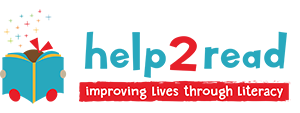Uncovering the motivation
7 July, 2016
We are delighted to present the first post of a four-part series by Beanstalk, our sister literacy organisation based in the United Kingdom. The series will cover tips that you can use to encourage children to read and make reading a fun, engaging activity.
Answers to the question “Why is reading so important to children?” are hardly difficult to come by: research abounds, governmental policy proliferates, and society long ago appeared to have reached a general consensus as to the importance of reading to a child’s chances of success in later life…
However, from the point of view of a person trying to encourage a child to engage with reading, especially one who is struggling or reluctant, it is the less asked question from the child’s point of view… “Why is reading important to me?” that is crucial.
If children’s current view on “what is reading good for?” is “nothing”… if they can see little or no “point” to it… if they have no clear sense of why it is worth it them to “bother”… then they are unlikely to engage with reading however much ‘someone else’ tells them how important it is!
People, of any age, aren’t necessarily motivated by someone else telling us why we “should” do anything, in fact that can have the opposite effect to the one intended! We tend to be more motivated by our own feelings and reasoning, which will have been influenced by a variety of different voices and experiences.
If we are ‘asked’ instead of ‘told’, of course, we tend to feel rather differently and are much more willing to consider possibilities.
We want to make sure that any reading activities we do, and any materials that we look at together, “fit” each child as an individual. So, tell them so! The message, however you choose to word it, is that it’s much better to spend your time together doing things that the child will find useful and interesting.
Below is a list (not a questionnaire!) of some of the reasons that other children give for wanting to read. Use it as a basis for a conversation to find out if they think each is a good reason for reading or not.
- Because it’s easier to do well in school
- So I can do the work we’re set in class and for homework
- Because I want to go to college or University when I leave school
- So I can read things like signs and labels
- Because I want to get a job when I leave school
- So I can find out how to make things
- Because I like learning stuff
- So I can see what other people have written
- Because I want to find out about other people or things
- So I can get information if I need to know about something
- Because I can learn more about myself
- So I can get an idea about things in books that you can’t do in “real life”
- Because you can lose yourself in another world in a book
- So I can think about things for myself
- Because it’s fun
- Because it makes me happy
- Because it’s exciting
- Because it passes the time
- So I can talk about things we’ve read with my friends
- So I can read to other people now (or in future)
Any ‘yes’ answers each child gives can be instructive in themselves (and, of course, children can give positive responses in more than one area!).
Broadly, positive responses to:
Reasons 1-5 suggests that the child may be motivated by the functionality of reading in ‘real life’
So we might select materials that have practical applications and ensure the child recognises progression and success in acquiring new skills
Reasons 6-10 suggests that the child may be motivated by gaining knowledge
So we might select fact-based materials and ensure the child recognises success in using new knowledge
Reasons 11-14 suggests that the child may be motivated by feeling better about him/herself
So we might select people-oriented materials and ensure the child recognises success in achieving something ‘a bit harder than they thought they could manage’
Reasons 15-18 suggests that the child may be motivated by the pleasure reading can give
So we might select fun-based materials and/or those with a strong narrative element and ensure the child recognises their enjoyment in reading them
Reasons 19-20 suggests that the child may be motivated by shared experience
So we might select materials that ‘everyone is reading’ ensure the child recognises success in sharing their reading skills and talking about what they have read
Of course, some children will give few, if any, positive responses initially – but the questions still give a platform for a) surreptitiously presenting them with the idea that “reading” is potentially of use to them in a much wider sense than they might have realised and b) asking them more detailed questions to help them re-think their initial answer.
So, for example, a “no” to “Because I want to get a job when I leave school” could be followed up with the question: “What job would you like to do?” Children may have a perception that certain jobs “don’t need reading” (because they associate it with reading books)… which is your opportunity to show them that most jobs, in fact, do! Demonstrating that, for example, checking the small print on your contract with Manchester United, understanding the technical specifications of different types of electrical equipment, following recipes to be the best baker in Britain (!) are all different kinds of reading…leads nicely into a discussion of the child’s interests: the next stage in helping you work out a successful strategy for selecting books and other materials to give you the best chance of engaging a child.






